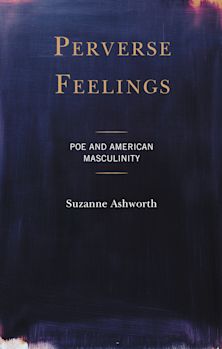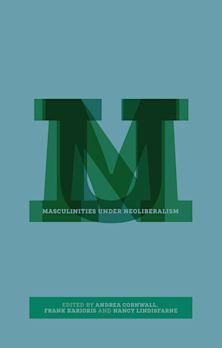- Home
- ACADEMIC
- Gender & Sexuality Studies
- Masculinities
- From Panthers to Promise Keepers
- Delivery and returns info
-
Free US delivery on orders $35 or over
You must sign in to add this item to your wishlist. Please sign in or create an account
Description
Written for a general audience, From Panthers to Promise Keepers draws on years of readings about, interviews with, and intimate observations of the men and networks who were involved in what some have called "the men's movement." Focusing on the decades between 1950 and 2000 in the U.S., From Panthers to Promise Keepers places networks of gay men and of black men (and women) at the center of its investigations, exploring some of the unexpected ways in which these seemingly marginal networks were precursors to, rather than mere followers of, the white and heterosexual men's groups that followed and that became the objects of media attention. This study also demonstrates that networks with radically different positions on important social issues nonetheless shared two related activities-criticizing individualist, self-making values and attempting, through surprisingly similar ritual practices, to construct ideals of masculinity that were more expressive of vulnerability, tenderness, and care.
Men's politically varied efforts to refashion masculine ideals during the last 50 years have contributed to a different global climate with respect to masculinities. Near the end of the 1990s, agencies such as UNESCO helped the reform of masculine ideals become more widely seen as a necessary component of movements for social justice and a "culture of peace." Current efforts to revive a more aggressive and force-based masculine ideal, a "masculinity for a culture of war," are one of many testaments to the cultural resonance of what has been called "the men's movement."
Table of Contents
Chapter 2 Men, Masculinity, and Mourning on the Mall: National Manhood and Male Romance
Chapter 3 Revolutionary Men: Civil Rights, Black Power, and the Reconfiguration of Black Masculine Ideals
Chapter 4 A Circle of Loving Companions: Radically Gay
Chapter 5 Reenchanting (White) Masculinity: The Profeminist Heritage of “Men's Liberation”
Chapter 6 Iron and Ironing Johns: Being Born Again in the Mythopoetic Movement
Chapter 7 Fathers of Themselves
Chapter 8 Reinventing the Husband
Chapter 9 Doing The Work of Love: Promise Keepers on Work, Marriage, and Fathering
Chapter 10 Beyond a Focus on the Family: Love Work As Race Reconciliation
Chapter 11 The Politics of Feeling
Product details
| Published | Nov 26 2004 |
|---|---|
| Format | Paperback |
| Edition | 1st |
| Extent | 304 |
| ISBN | 9780847691302 |
| Imprint | Rowman & Littlefield Publishers |
| Dimensions | 9 x 6 inches |
| Series | New Social Formations |
| Publisher | Bloomsbury Publishing |
About the contributors
Reviews
-
Judith Newton's years of research on men's networks, along with her insight into the complex ways that gender relations are intertwined with race, sexualities, and nation, have resulted in an important and provocative book. From Panthers to Promise Keepers moves men of color and gay men from the margins to the center of analysis, and the result is a ray of optimism: When we de-center white, heterosexual men from our analysis, Newton shows us, we see that men's collective efforts to develop ideals of manhood based on care and connection with others may yet contribute to the development of a more peaceful and egalitarian world.
Cheng Chen, University of Southern California
-
This profound, original, and engaging book leaps boldly and imaginatively across disciplinary fences to tackle the ultimate feminist riddle: what do men want? Drawing upon ethnography, literary criticism, psychoanalysis, and historical and sociological analysis, From Panthers to Promise Keepers plumbs the sources and meanings of contemporary men's movements from urban guerillas and mythopoetic drum-beaters to charismatic Christians and queer activists. The mystifying terrain of contemporary masculinities has no more sage or sympathetic feminist oracle than Judith Newton.
Judith Stacey, New York University
-
Newton takes seriously recent calls by scholars to bring emotions back to the study of social movements. Her book should prove of substantial value for collections in social movements and gender studies. Highly recommended.
Choice Reviews
-
Newton does an impressive and welcomed rethinking of the 'men's movement.'...[and] provides a vary valuable study that teases out the similarities and differences of various networks of men who gather together in various ways, often using aspects of male romance, to enhance their emotional lives and their relationships, which also benefits women, children, other men, and families of whatever configuration.
Men and Masculinities
-
Judith Newton has produced a pioneering work that connects African American social movements of the 1960s to men's movements of the 1970s and 1980s. Her approach is innovative, weaving together a sophisticated theoretical argument with personal narrative. This well-grounded book adds considerably to our knowledge of how ideas and ideologies spill over to other social movements.
Belinda Robnett, University of California, Irvine


































